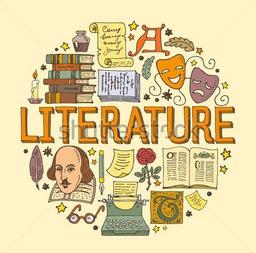
Summative Test in 21st Century Literature
Quiz by JoEM Mejica
Feel free to use or edit a copy
includes Teacher and Student dashboards
Measures 1 skill from
Track each student's skills and progress in your Mastery dashboards
- edit the questions
- save a copy for later
- start a class game
- automatically assign follow-up activities based on students’ scores
- assign as homework
- share a link with colleagues
- print as a bubble sheet
- Q1
1. Which of the following is NOT true about the pre-colonial literature of the Philippines?
Precolonial literature includes folktales, mythology, and epics.
Precolonial literature includes dramas and novels.
Precolonial literature includes chants, proverbs, and songs.
Precolonial literature includes literature passed from generation to generation
through a word of mouth.
60sEN12Lit-IId-25 - Q2
2. Which of the following pertains to the transmission of literary works where stories were passed down by word of mouth?
gossiping
oral tradition
storytelling
kudlit
60s - Q3
3. Which of the following is NOT true about Legends?
Legends were passed down orally from one generation to another and saw print only in ethnographic studies of different cultural groups.
Legends contain the elements of a narrative, namely the setting (time and place); characters (protagonist and antagonist); and plot (conflict and resolution of the conflict.
Legend contains words of wisdom that are handed down from one generation to another.
Legends highlight cause-effect relationships to show how and why things come to
be.
60s - Q4
4. Which of the following is NOT true during the Spanish Colonial Period?
The education system was introduced.
Focused on religion and values which became instruments in spreading Christianity and which became instruments in Spanish- oriented culture.
Drama like Karagatan, Pamamanhikan, Senakulo etc. was common literary forms during this period
It brought up liberal ideas and a sense of internationalism to the Philippines.
60s - Q5
5. Which of the following is the meaning of the term “poeis”?
to tell
to discuss
to create
to rhyme
60s - Q6
6. Which of the following refers to the 21stliterary form whose genre focused on a story based on truth, an accurate retelling of the author's life experience?
Creative Nonfiction
Fiction
Creative Fiction
Biography
60s - Q7
7. Which is the definition that describes literature as a creative written work?
Literature is anything written and published.
Literature is limited to written materials that gain artistic merit for aesthetic purposes.
Literature is written solely to inform and persuade.
Works of literature are writings in prose or verse, especially those having excellence of form or expression and expressing ideas of universal interest.
60s - Q8
8. Which form of literature relies on the use of imagery, symbolism, figures of speech, and sound and rhythm of speech in expressing one's feelings, ideas, and beliefs?
Poetry
Prose
Non-fiction
Fiction
60s - Q9
9. Which method of literary study involves rigorous analysis of literary work, paying attention to allthe significant parts of the work to interpret each part in relation to the whole work.
Close reading
Interpretation
Research
Active reading
60s - Q10
10. In which type of literature do legends, folktales, short stories, and any novels belong?
Art
Poetry
Fiction
Non-Fiction
60s - Q11
11. Which literary form of verses that depicts a mythic hero with extraordinary strength, adventure, and heroism?
Legend
Myth
Fairy tale
Epic
60s - Q12
12. What element of the story is depicted in this given statement: "The King is very ill and his sons rival each other in catching a bird"?
Character
Theme
Conflict
Setting
60s - Q13
13. What refers to a part in a short story or novel wherein the conflict reaches its highest point of interest or suspense?
Exposition
Denouement
Climax
Plot
60s - Q14
14. What element of plot is depicted in this given statement: "Everything changed when she showed unparalleled strength and courage."?
Falling action
Resolution or denouement
Rising Action
Climax
60s - Q15
15. The famous work "El Filibusterismo" written by Dr. Jose P.Rizal reflects the daily experiences and struggles of our Filipinos during his time. In which genre does it belong?
Poetry
Prose Fiction
Non-fiction prose
Drama
60s